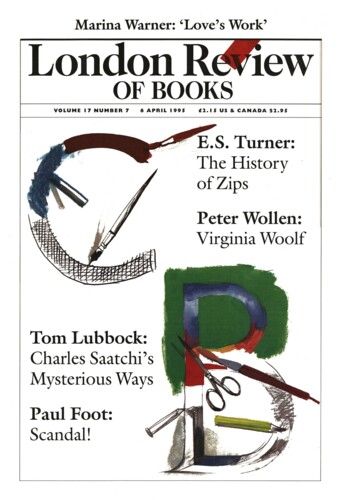Carry on Camping
Mary Hawthorne, 6 April 1995
Jayne Anne Phillips’s first novel of more than a decade ago, Machine Dreams, reconstructed the history of three generations of a single middle-class, small-town American family over the course of some fifty years. From the perspective, by turns, of parents and children, she contemplated the complexities and banalities of relations among family members against the political background of the time, focusing on the far-ranging effects that were brought to bear by the Second World War, the Korean War and the Vietnam War. The book’s scope was seemingly broad, but it was Phillips’s rendering of ordinariness that made it resonate. The locale might have been virtually any small town in America, for she recalled the universals of American culture – especially those of the Sixties – with such accuracy that any reader who, like the author herself, had come of age then was bound to find his own childhood returning to him in electric shocks of memory. It was her eye that conjured up the past contained so mysteriously in objects: the gloomy paraphernalia of military service locked away in a water-stained trunk in the attic; the parade float fashioned out of chicken wire and crepe paper inching along a Main Street strewn with candy; the high horizontal windows of a ranch-house bedroom.’



